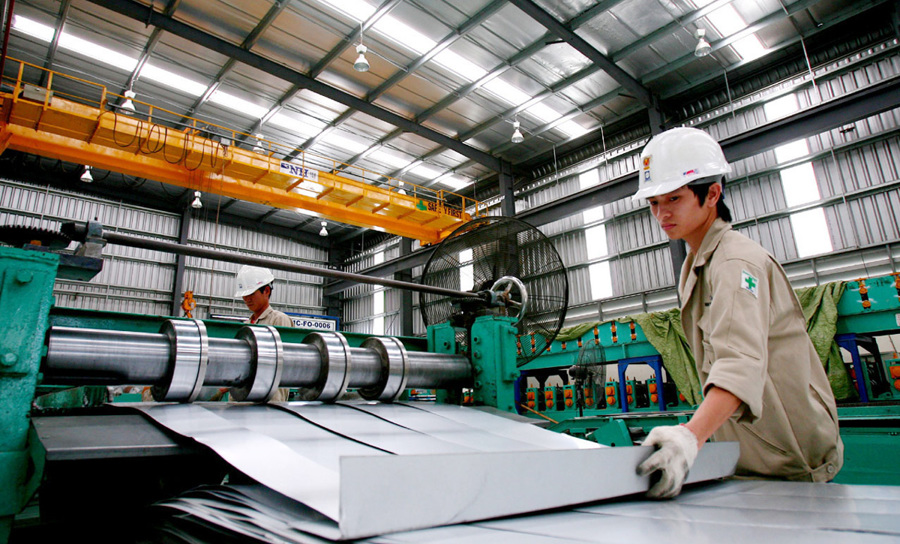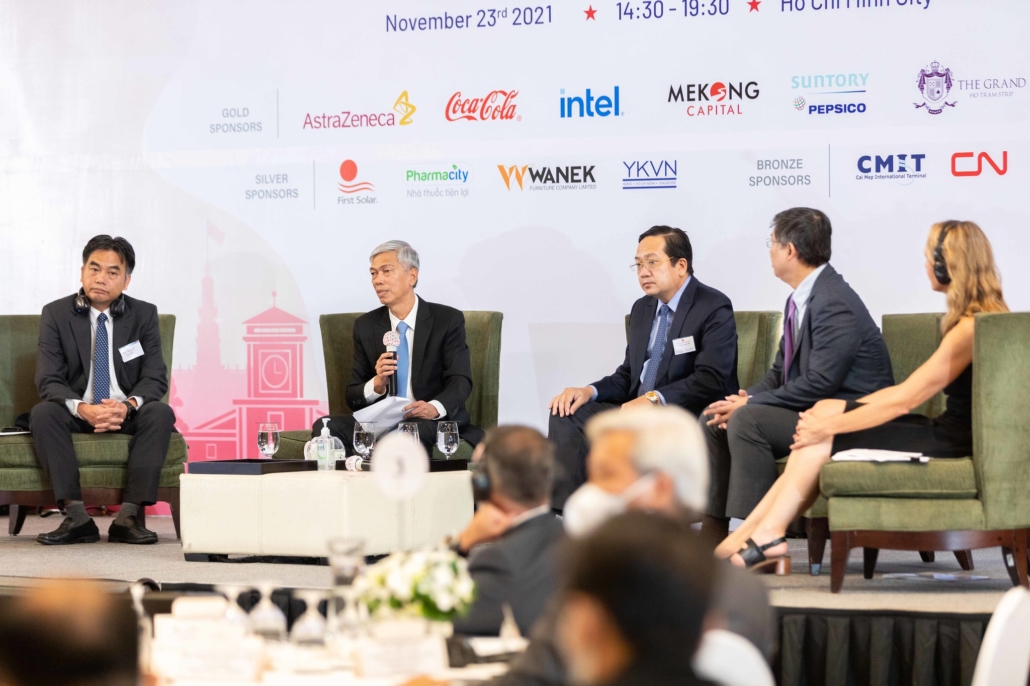US firms in Vietnam concern potential export tariffs
The American Chamber of Commerce in Vietnam has urged policymakers to continue dialogue to find solutions that support sustainable economic growth and minimize trade disruptions.
More than 80% of American businesses in Vietnam are concerned about the possibility of tariffs on exports under the Donald Trump administration, according to the American Chamber of Commerce (AmCham Vietnam), based on a survey of its more than 100 members conducted in Ho Chi Minh City from February 4 to 11.
| Steel is Vietnam's main export product to the US. Photo: Hai Linh/The Hanoi Times |
Just weeks into his second term, President Donald Trump announced a series of new tariff policies, including an additional 10% tariff on Chinese goods and 25% on imports from Canada and Mexico, although he later delayed these measures for 30 days.
He also announced increased tariffs on steel and aluminum imports, plans to impose auto tariffs starting in April, and the introduction of reciprocal duties.
These moves are worrying American manufacturers in Vietnam. AmCham reported that 92% of respondents expressed concern that tariffs could disrupt supply chains and undermine their competitiveness.
"If these tariffs are levied, it would be a significant setback for our industry. We rely heavily on exports to the US, and the added costs would reduce our competitiveness," said a representative of the US manufacturer in Vietnam.
More than 75% of companies surveyed believe that the imposition of tariffs would negatively impact operations, create financial pressure, and limit market access. Nearly half of respondents said they would consider reducing headcount if tariffs were enforced, with two-thirds of manufacturers considering the possibility.
Travis Mitchell, Executive Director of AmCham, emphasized that the survey results reflect a “significant level of concern” among American companies operating in Vietnam regarding the threat of tariffs.
He noted that the association's members are concerned about business disruptions, financial pressures, job losses, and broader economic impacts.
According to the survey, more than 85% of respondents believe that tariffs would reduce trade volumes, disrupt long-standing partnerships, and negatively impact Vietnam's economy.
In response to potential tariffs, some US companies are considering shifting their export focus to other markets or adjusting their supply chains to reduce reliance on the US, the report said.
American companies maintain confidence in Vietnam
| Meet the USA event in Ho Chi Minh City. Photo: AmCham Vietnam |
Despite concerns about potential tariffs, 94% of companies surveyed, including 98% of manufacturers, view Vietnam as an attractive long-term investment destination due to its developed infrastructure, skilled workforce, and strategic location.
The association urged policymakers to continue dialogue to find solutions that support sustainable economic growth and minimize trade disruptions.
"The strong US-Vietnam trade relationship benefits both countries. Open communication and cooperation are key to maintaining this relationship," said Travis Mitchell.
In a meeting with Minister of Industry and Trade Nguyen Hong Dien on February 12, US Ambassador to Vietnam Marc E. Knapper reiterated that the new US policy is aimed at promoting fair trade and protecting economic security, workers, and American businesses.
"The latest tariffs are not targeted at Vietnam, and the US wants to maintain a positive economic partnership with the country," Knapper said.
Two-way trade turnover between Vietnam and the US exceeded US$132 billion in 2024, according to data from the General Department of Vietnam Customs.
Vietnam's exports to the US are estimated to have reached nearly $119 billion last year, up 23.3% year-on-year, while imports from the US are estimated to have hit $13 billion, up 7.3% year-on-year.
A report released by HSBC on February 11 highlighted that tariff risks are casting a shadow over export prospects. "Vietnam faces the highest tariff risk in ASEAN due to its significant trade surplus with the US," the bank said.












